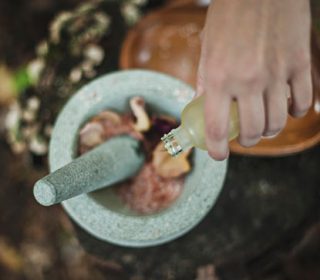Tips for Protecting your Mental Health Post-Lockdown

What would it mean to you if you realised that you had everything inside of you to maintain your mental health? Especially at this time – as we gradually move out of lockdown, and try to adjust to a semi-normal, post-pandemic life.
My role as a life coach means I help my clients realise their innate abilities and the level of control that they actually have over their life experience.
Even though this period in lockdown has been a challenge in one way or another for most people, I’ve come across some people who have seen it as an opportunity to review many aspects of their life. I personally have – and am definitely making positive changes post-lockdown.
For example, through considering our wants and don’t wants in life; what matters and what doesn’t matter to us; what we have control over and what we don’t; what we would like to spend more and less time doing. Not to mention asking ourselves – What can we do to maintain our mental health from this point onwards?
Asking those sorts of questions is very much part and parcel of checking in ourselves. I wonder if this sounds familiar to you?
One particular thing has really been highlighted for me personally during this period is what we do and don’t have control over.
For example, we can’t control what life curveballs are thrown our way. However, we do have more control than we often give ourselves credit for with regards to our own experience in relation to those events and in turn, how we can keep on the path that we want to in order to maintain our mental health.
If you’re concerned about adjusting to post-lockdown life, or know someone who might need support, here are some tips you can try:
Tip #1 – Normalise our post-lockdown feelings
Acknowledge that whatever you’re feeling – even if you think you’re the only one having this experience at this time, it is normal. It is normal based on how you’re making sense of the world around you. So whether these are feelings of anxiety, fear and panic; or happiness, hopefulness and positivity – it’s all normal.
Th trick is to move to a space of simply being grateful when you enter moments of feeling good, and not punishing yourself when feeling not-so-good – you’re working towards understanding and accepting all experiences, as opposed to fearing them.
By recognising and normalising all emotions, the perceived environment that you find yourself in becomes less threatening, creating opportunities to share your feelings with others through normal and supportive conversations.
Tip #2 – Recognise that you are, always have been, and always will be, No.1.
As lockdown has shown, when chaos and life curveballs are thrown at us, we will always have us. That is the one constant that we always have. We’ve always had this ability to adapt, evolve and embrace change far more than we give ourselves credit for. Treating ourselves kindly is the foundation for everything else.
Tip #3 – Consider kindness to always matter
I’ve often considered, if we all had the capacity to be able to think of someone else, what an amazing world we would live in. Maybe that’s something we can all try and work on post-lockdown? The kindest thing you can do is give someone time and space to talk. So let’s get started; listen to and help each other, and create a world where taboos around mental health are a thing of the past.
Tip #3 – Start and maintain Routines
The enforced changes in your life pattern has provided an opportunity to consider what new routines you can build in your life. It’s a moment to consider how you might want to do things differently post-lockdown and with that, perhaps you can see that these opportunities are always there, using the 4 Rs:
Reflect: What is really important to you? How do you want to live? ‘What do you want?’ If you’re unsure about this, start with ‘What don’t you want?’
Recharge: Acknowledge having ‘me time’ on a daily, weekly or monthly basis is a key part of your routine to maintain your own health and wellbeing in your lives going forward.
React: What is the first thing or what is most important to you to keep doing? Then, how can you plan this into your lifestyle consistently as an ‘it’s just what I do’ kind of activity.
Review: This is very much part of making yourself more accountable for the path that you take following lockdown. When are you going to check-in on yourself to see if you’re on track? Could you tell someone about your plan who can help hold you accountable?
Tip #4
Chart your Daily Settler markers to maintain your mental health at work and in normal life.
This is very personal to you – what works for you may not work or be important to someone else. Using a scale of 1-3 to be your guide, what do you feel that you need to do each day to keep yourself on track? Examples of your Daily Settler markers might be:
- Have X amount hours of sleep
- Don’t bring work pressures home with you
- Ensure you have X amount of time for lunch
- Speak to someone in particular
- Exercise X amount of minutes per day
I always remind my clients that it’s not solely the act of performing routines and behaviours that keeps our mental health maintained. However, by having pleasurable or enjoyable moments; a period of ‘me-time’ and those times of kindness built-in to ‘it’s just what we do’, we are more likely to have good mental health if we consistently build these routines into our lives. This is partly because we spend less time thinking; there is less procrastination and less chance that our motivation dwindles.
Try to focus on the present moment and take pleasure from the little things you can enjoy again with each stage of restrictions easing.
To find out more about Dave Knight’s Life Coaching and Wellbeing packages for individuals and businesses, please visit www.sundaysettler.com/bulletproof/.









